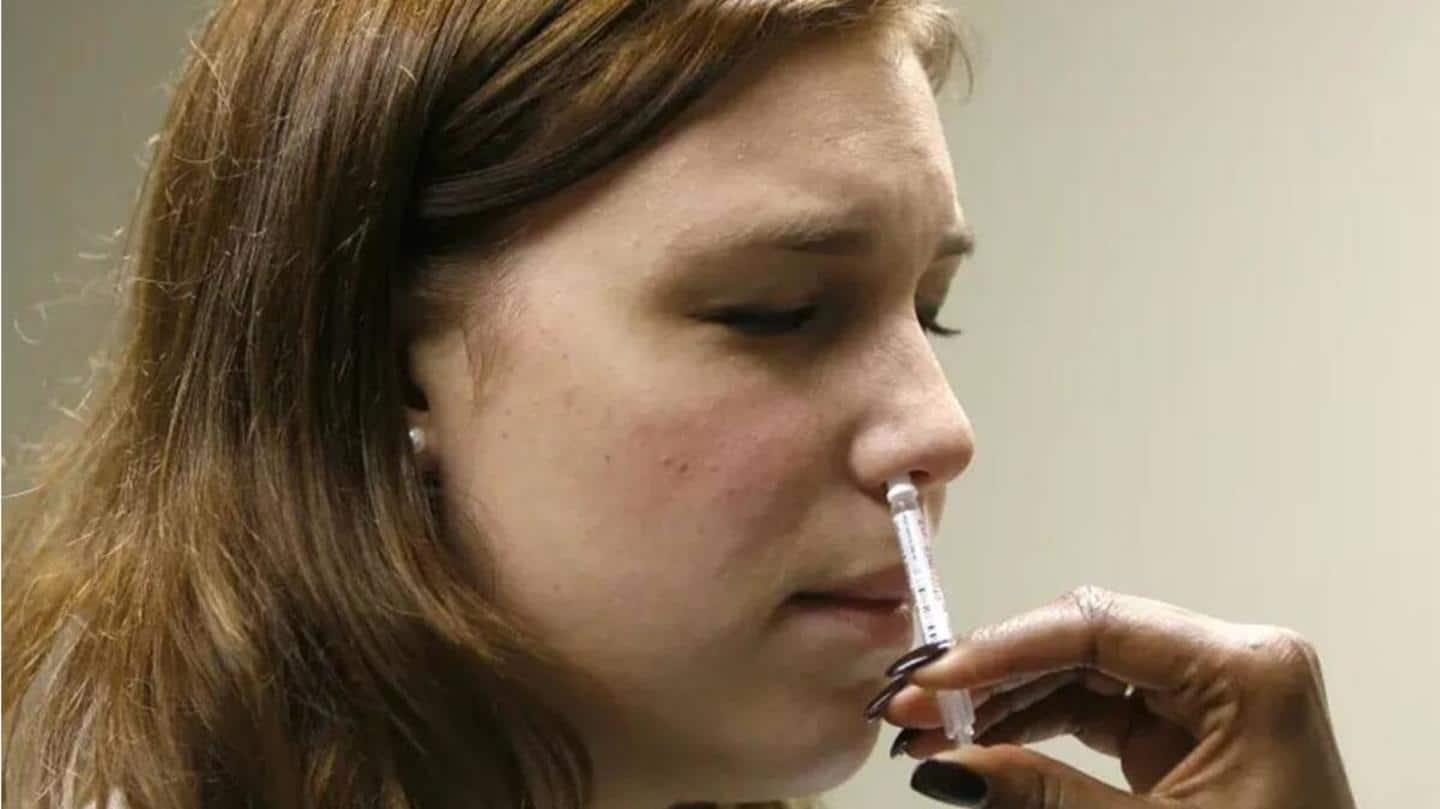
Panel recommends permission for Phase I Intranasal COVID-19 vaccine trial
What's the story
An expert panel, Central Drugs Standard Control Organisation, (CDSCO) on Tuesday recommended granting permission for conducting the Phase I clinical trial of an intranasal vaccine against COVID-19 developed by Bharat Biotech, official sources said. VK Paul, NITI Aayog member (Health) said, "If this vaccine works, it can be a game-changer because it is so easy to use and we look forward to this development."
Details
Bharat Biotech applied to DCGI for permission to conduct trial
Bharat Biotech had applied to the Drugs Controller General of India seeking permission for conducting Phase I and Phase II clinical trials of the intranasal vaccine, following which the expert committee recommended granting permission. "Based on the safety and immunogenicity data of Phase I clinical trial, the company would be given permission for conducting Phase II clinical trial," an official said.
Quote
'Intranasal COVID-19 vaccine preclinical testing has been completed'
"BBV154 (intranasal COVID-19 vaccine) preclinical testing has been completed for toxicology, immunogenicity, and challenge studies. These studies have been conducted in the USA and India. Phase I human clinical trials will commence during February-March 2021," the vaccine maker said.
NITI Aayog's statement
A nasal vaccine candidate has been identified: Dr. Paul
Dr. Paul had earlier informed, "A nasal vaccine candidate has been identified. It has come for consideration to the drug regulator for Phase I and Phase II clinical trials." "It looks like an exciting development because potentially, this route can be used to deliver the safe antigen against which an immunological response would happen," Dr. Paul added.
Bharat Biotech's statement
'One drop of vaccine in each nostril is sufficient'
Dr. Krishna Ella, the Chairman of Bharat Biotech, had earlier said that the company is focusing on the intranasal vaccine as existing vaccines require two-dose intramuscular injections and a country like India needs 2.6 billion syringes and needles which may add to pollution. "One drop of vaccine in each of the nostrils is sufficient," he had said.
Information
How will the intranasal vaccine work?
Dr. Ella said that an intranasal vaccine will not only be simple to administer but reduce the use of medical consumables such as needles, syringes, etc., significantly impacting the overall cost of a vaccination drive.